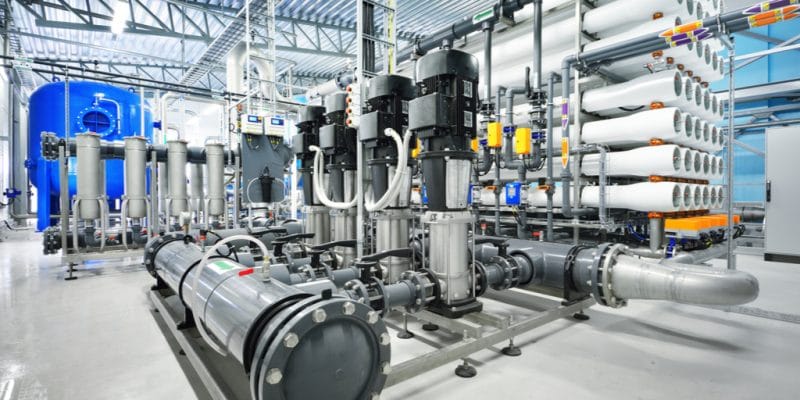The building and public works group (BTP) Cosider is delivering the Palm Beach seawater desalination plant, after several months of closure for rehabilitation and extension works.
The Palm Beach seawater desalination plant is back in service since August 19, 2021, at a time when Algeria continues its fight against drought due to its arid climate and climate change. The plant, located in the wilaya (province) of Tipaza, now produces 7,500 m3 of drinking water per day, compared to 2,500 m3 before the expansion work.
The reverse osmosis plant is capable of supplying 50,000 people per day. This contributes to meeting the drinking water needs of the population in Palm Beach and the surrounding areas. According to a World Bank report on the development of the Middle East and North Africa (Mena), an Algerian receives barely 500 m3 of water per year, the same as a Tunisian or a Djiboutian.
Cosider has implemented the rehabilitation and extension of the Palm Beach seawater desalination plant. The Algerian building and public works group (BTP), headed by Lakhdar Rekhroukh, is 100% owned by the Société Nationale de Sidérurgie (SNS), following the latter’s purchase (in 1982) of the shares of its Danish partner Christiani et Nielsen.
Improvement of the drinking water supply
With the re-commissioning of the Palm Beach desalination plant, the Société de l’eau et de l’assainissement d’Alger (Seaal) improved its production capacity. The public company, owned by Algérienne des Eaux (ADE) and the Office National de l’assainissement (ONA), has operated the plant since 2004. Algeria has a number of operational seawater desalination plants. These installations are spread over nine wilayas (Chlef, Tlemcen, Algiers, Skikda, Mostaganem, Oran, Boumerdès, Tipaza and Aïn Témouchent) and provide 17% of the drinking water consumed in the country, i.e. a capacity of 2,110,000 m3 per day.
Read also- AFRICA: desalination now at the heart of water supply strategies
In this North African country, the government is promising the construction of new desalination plants, as shown by the new emergency plan recently detailed by Mohamed Arkab, the Algerian Minister of Energy and Mines. In its first phase, the construction of a desalination plant at Cap Djenat, with a capacity of 400,000 m3 per day. To the west of Algiers, another plant will be built with a capacity of 250,000 m3 per day, as well as a third of 250,000 m3 per day in the wilaya of El Tarf. The Algerian government wants to equip each coastal wilaya with a seawater desalination plant.
Inès Magoum







